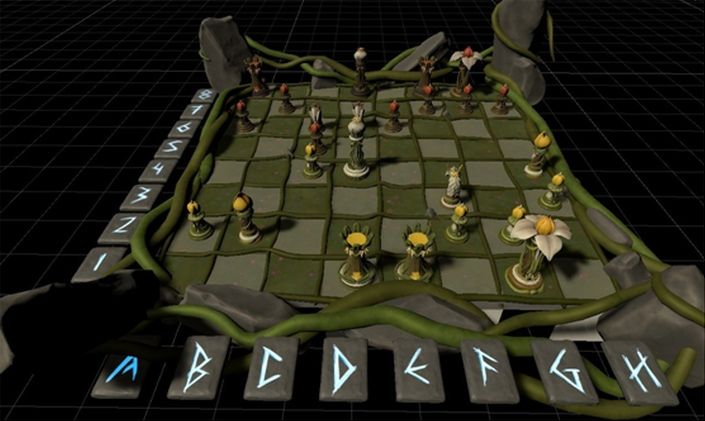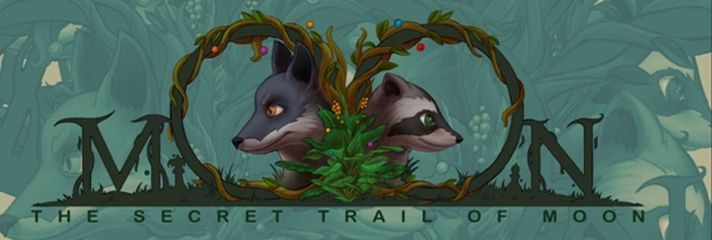Chess as a tool to fight Attention Deficit Hyperactivity Disorder
We have often heard about using chess as a tool to help and benefit the society in various sphere of daily life. We have also heard of people saying video games doing more harm than good which studies have proved it to be not true. Research showed few months ago that it is good for mental health. Last year we shared an experience by a young man with ASD and the role of chess in his life. In this article, we tell you about a clinical trial which was conducted among teenagers to test the effectiveness of a chess based video game on patients diagnosed with Attention Deficit Hyperactivity Disorder (ADHD). Photo: The Secret Trail of the Moon

Last month, a new clinical trial was conducted among 105 teenagers to test the effectiveness of a chess-based videogame to treat the cognitive training of patients diagnosed with Attention Deficit Hyperactivity Disorder (ADHD).
It is estimated that this neurodevelopmental disorder has a worldwide prevalence between 4% and 7%. ADHD is characterised by attention dysfunction and/or symptoms of hyperactivity and impulsivity, that can affect people in their daily life to a greater or lesser extent.
María Rodrigo Yanguas, WFM and President of the Spanish Chess Federation Commission for Women in Chess, is also a sports psychologist. She has been part of the team that has developed this virtual reality video game, and she sent us the following article.
"The Secret Trail of Moon”
"The Secret Trail of Moon” (TSTM) is a serious virtual reality (VR) video game designed for the cognitive training of patients diagnosed with Attention Deficit Hyperactivity Disorder (ADHD). The gamification of chess is core to the development of TSTM. TSTM has been developed by a multidisciplinary team: 1) a video game company Gammera Nest [Daniel Sánchez Mateos (CEO of the company), Miguel Ruiz Domínguez (Lead programmer) and Marina Martín Moratinos (psychologist)]; 2) an expert on gamificiation:, Carlos González Tardón (psychologist and Professor at Tecnocampus-UPF); and a clinical and research group at the Hospital Universitario Puerta de Hierro [Hilario Blasco Fontecilla (psychiatrist) and her PhD student, María Rodrigo Yanguas, a sports psychologist specialized in chess.

ADHD is a neurodevelopmental disorder with a worldwide prevalence between 4-7%. Heritability is estimated at 70%. ADHD is characterized by attention dysfunction and/or symptoms of hyperactivity and impulsivity in two or more different areas with interference in daily life. The best treatment is multimodal treatment: pharmacological treatment, psychoeducation for parents and teachers, and cognitive-behavioral treatment. Unfortunately, cognitive-behavior psychotherapy is usually expensive and can be boring for some children and adolescents. Accordingly, some patients affected by ADHD cannot be benefited from this treatment. This was a major reason for TSTM to be created. TSTM, compared to other treatments, is innovative, enjoyable, and will be cheap when commercialized.
TSTM uses a video game engine Unity 2020.1.1f0 in the development for PlayStation 4, PlayStation 5 and PlayStation VR. It is composed of 5 mechanics of game aimed to cognitive training of the most deficient areas from ADHD patients: attention, working memory, planning, visuospatial ability, and reasoning. It also works on other skills such as impulsive behavior, cognitive flexibility, or processing speed. Chess elements appear both in the story and in the mechanic of games. In fact, TSTM includes a complete mechanic of chess where the patient learns to play chess from the most basic level (knowledge of the board and pieces) to being able to perform checkmate exercises in 1 move. For this reason, we have created our own chess pieces incorporating them with the narrative story.
Chess is core to TSTM because we incorporated all the experience gained in different settings using chess during the last decade. In 2016, Hilario Blasco-Fontecilla published the results of a pilot study conducted with 44 children diagnosed with ADHD with and without pharmacological treatment using an add-on strategy with chess. These children performed cognitive training using chess for 3 months (https://pubmed.ncbi.nlm.nih.gov/25911280/). Most of the children benefited, independently of whether they were or not under drug treatment. Furthermore, gifted ADHD children were the most benefited by using chess. In a second step, we gained an i-PFIS contract (www.isciii.es) for:
1) developing a serious chess-based video game.
2) testing its effectiveness using a clinical trial (see below).
We merged our project with another ongoing project (lead by Gammera nest) using VR to treat ADHD, and this settled the basis for TSTM. In November 2020 we published our first scientific article explaining the scientific basis underlying the use of TSTM (http://ceur-ws.org/Vol-2719/paper20.pdf). Currently, several other papers related to this scientific and industrial project are under consideration for publication.
On January 26th, 2021, we finished a clinical trial aimed at testing the effectiveness of TSTM to ameliorate ADHD symptoms (https://clinicaltrials.gov/ct2/show/NCT04355065). The clinical trial was randomized, non-blinded, with the control group and pre-post evaluation. We recruited 105 patients aged 12 to 22 diagnosed with ADHD and under pharmacological treatment. All patients were randomized into one of these three groups:
1. TSTM group: 12 sessions (1 session/week) of cognitive training with the video game
2. Online chess group: 12 sessions (1 session/week) of online chess cognitive training.
3. Control Group: 12 weekly follow-ups without any cognitive training.
All participants were evaluated before and after 3 months. We retrieved clinical information from both the patients and their parents and used several questionnaires and objective measures (CPT-3) to evaluate ADHD symptoms and executive functions pre and post-treatment. The major hypothesis is that the use of either online chess or TSTM may help to improve ADHD symptoms in clinically stable drug-treated patients. Currently, we are analysing our data in order to get published our results. Lately, we have begun the second phase of TSTM development aimed at getting TSTM commercialized.
Links
The Secret Trail of the Moon: twitter, instagram and facebook

